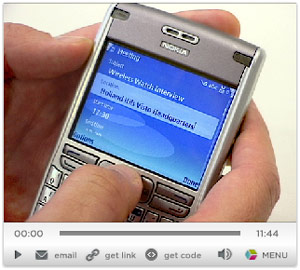Proxim and NEC Begin Deployment of Large Retail Wireless Network
Proxim Wireless Corporation, a global provider of broadband wireless equipment and subsidiary of Terabeam, Inc., today announced that it is supplying NEC Infrontia Corp., a leading manufacturer of key telephone systems and point-of-sale (POS) systems, with the infrastructure to deploy Wi-Fi hotspots and wireless POS solutions throughout Japan in all of the locations of two large retail chains. These deployments are individually the largest retail wireless networks in both companies’ history.


 Yesterday, Vodafone Japan announced
Yesterday, Vodafone Japan announced